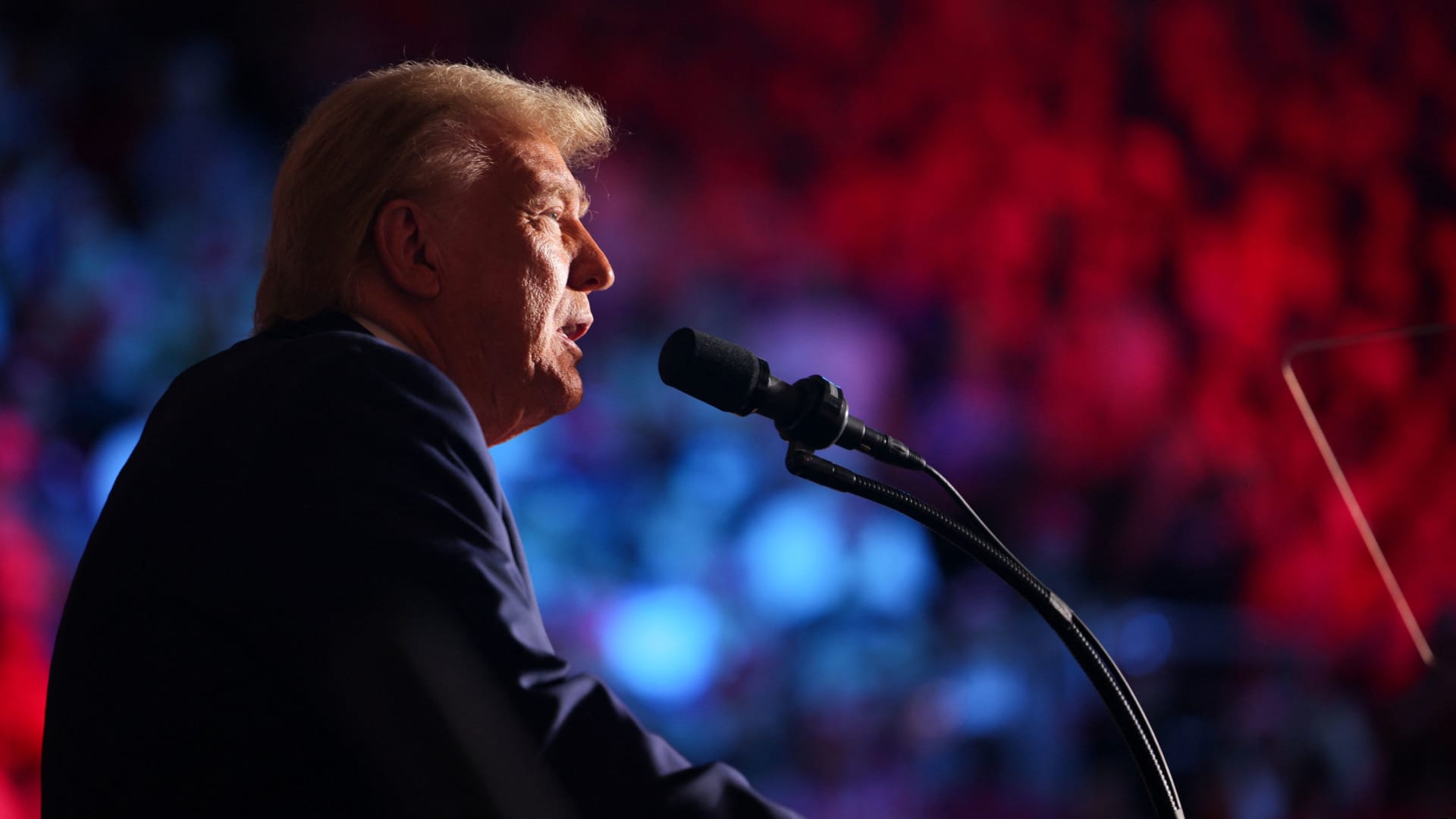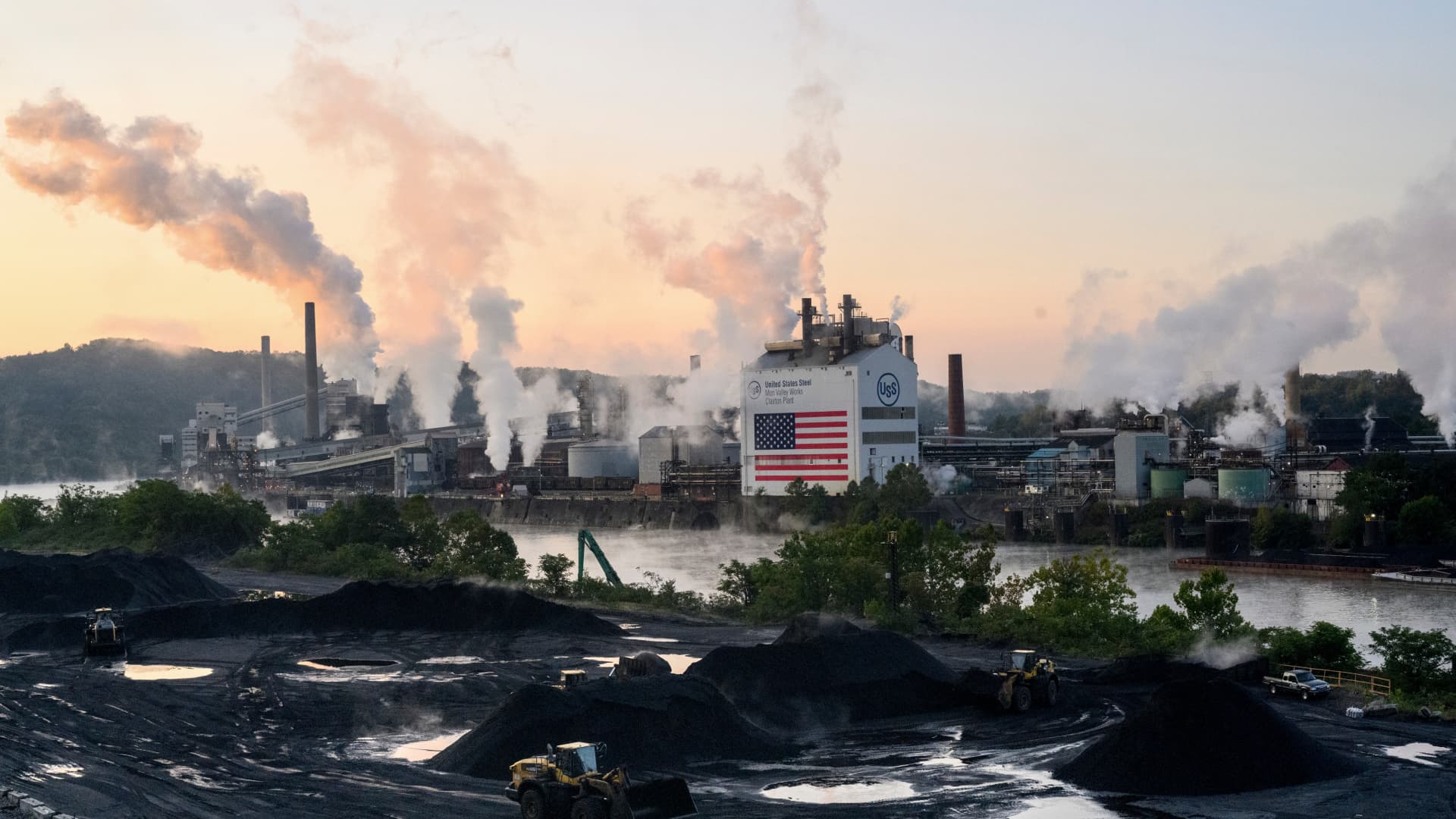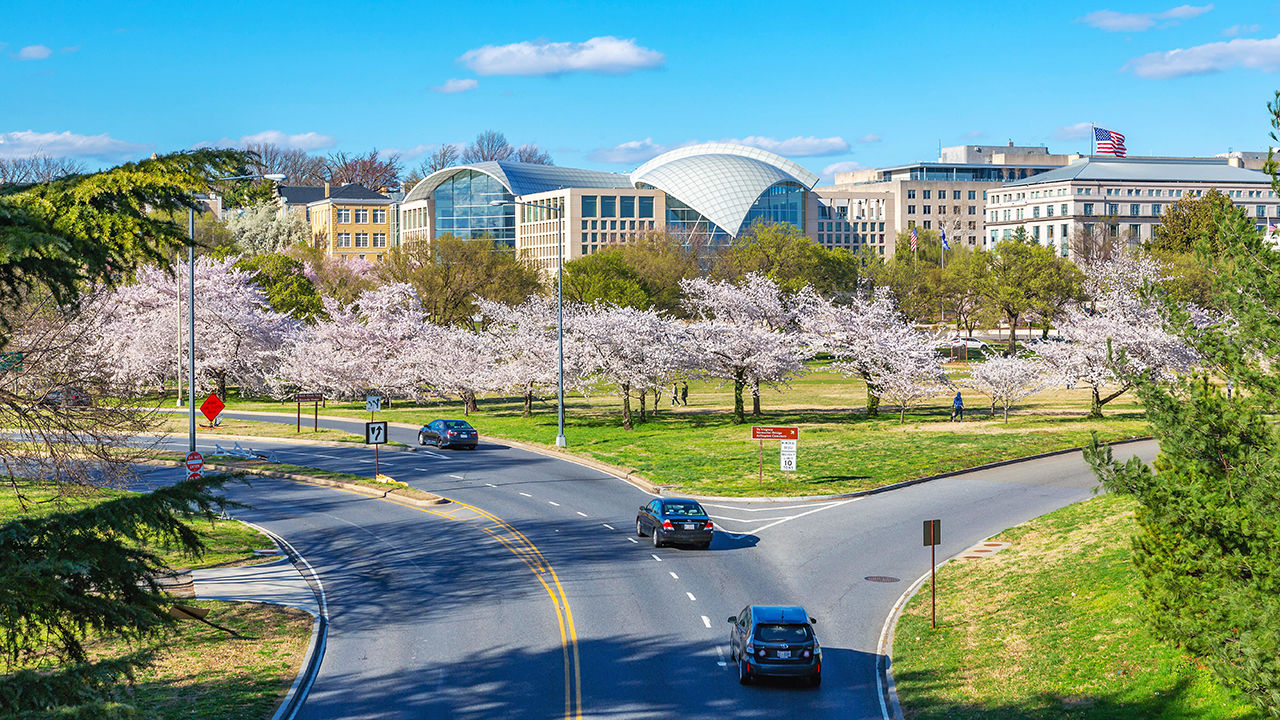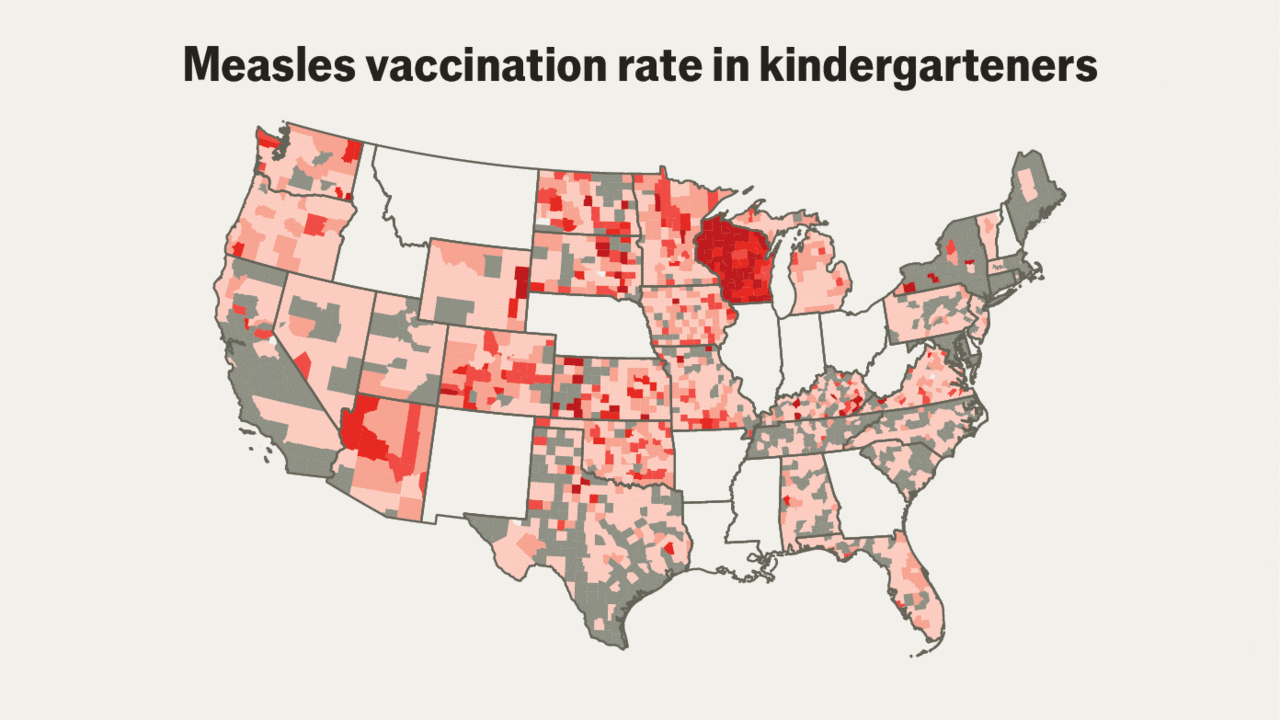Extreme tariffs proposed by U.S. presidential candidate Donald Trump would interrupt the path of disinflation and could lead to higher interest rates, according to the head of the Institute of International Finance.
“The assumption is you’ll have higher inflation, higher interest rates than you would have in the absence of those tariffs,” Tim Adams, president and CEO of the IIF financial services industry trade group, told CNBC’s Karen Tso on Tuesday.
“You can argue, is it one off, or is it over time? It really depends on what retaliation looks like, and is it iterative over time. But no doubt it would be a break on the progress we’re making bringing down prices,” Adams said.
Trump has made universal tariffs a core part of his economic pitch to voters, with suggestions of a 20% tariff on all goods from all countries and a higher 60% rate on Chinese imports. He has also pledged to put a 100% tariff on every car coming across the Mexican border, and to slap any country which acts to “leave the U.S. dollar” with a 100% tariff.
In defense of the plan, Trump told Bloomberg Editor in Chief John Micklethwait in an interview earlier this month: “The higher the tariff, the more likely it is that the company will come into the United States and build a factory in the United States, so it doesn’t have to pay the tariff.”
Trump has previously described universal tariffs as drawing a “ring around the country,” and denied they would be inflationary.
However, analysts have warned that the overall package proposed by Trump, including higher tariffs and curbs on immigration, would place upward pressure on inflation, even if some of the impact could be absorbed in the near-term.
U.S. inflation came in at 2.4% in September, down from a peak of 9% in June 2022 as the world grappled with the impacts of pandemic supply chain disruption and vast fiscal stimulus. The Federal Reserve kicked off interest rate cuts in September with an aggressive half percentage point reduction, despite concerns about the onward path of disinflation.
The potential return of a Trump U.S. presidency comes at a time of increasing trade fragmentation around the world. The European Union earlier this month voted to place higher tariffs on China-made battery electric vehicles, alleging carmakers there benefit “heavily from unfair subsidies.”
The IIF’s Adams told CNBC that both Trump and his Democrat opponent Kamala Harris were running as “change candidates” rather than pledging continuity.
“The concern about Trump is that he’s anti-internationalist, doesn’t care about transatlantic relations, and will be more focused on isolationism and protectionism. Some of them may be a little overdone, but there’s certainly elements of that,” Adams said.
“There’s no doubt that Vice President Harris will be much more engaged with the global community, much more interested in international organizations.”
CNBC has contacted the Trump campaign for comment.
— CNBC’s Rebecca Picciotto contributed to this story.

 Economics1 week ago
Economics1 week ago
 Economics1 week ago
Economics1 week ago
 Economics1 week ago
Economics1 week ago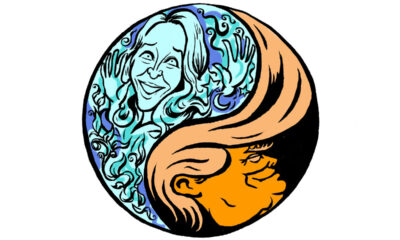
 Economics1 week ago
Economics1 week ago
 Blog Post1 week ago
Blog Post1 week ago
 Economics1 week ago
Economics1 week ago
 Economics7 days ago
Economics7 days ago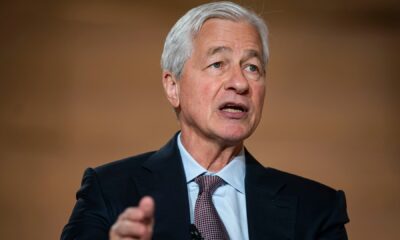
 Economics1 week ago
Economics1 week ago
